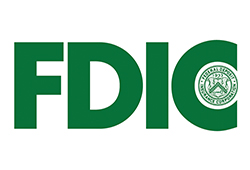 On March 24, 2023, the Federal Deposit Insurance Corporation (FDIC) announced that it had issued an advisory letter to a United States-based neobank, demanding that the company immediately cease and desist and take immediate corrective action to address allegedly false and misleading statements regarding the company’s insured status under the Federal Deposit Insurance Act and its implementing regulations.
On March 24, 2023, the Federal Deposit Insurance Corporation (FDIC) announced that it had issued an advisory letter to a United States-based neobank, demanding that the company immediately cease and desist and take immediate corrective action to address allegedly false and misleading statements regarding the company’s insured status under the Federal Deposit Insurance Act and its implementing regulations.
The FDIC asserted that the company’s website represented that it was “insured by the FDIC” and that its customers can keep their “money in a strong financial jurisdiction (FDIC protected).” In addition, the main page of the company’s mobile app included a prominent statement that its customers’ funds “are FDIC protected” with “[u]p to [$]250,000 protected by the FDIC.” And on similar posts made on social media, the company represented to Spanish-speaking customers that it was backed or protected by the FDIC.
According to the FDIC, those and similar representations contained false and misleading representations regarding FDIC deposit insurance, as they suggested that the company is FDIC-insured when, in fact, it is not. The FDIC’s letter further claims that the company’s promotional materials failed to identify an actual FDIC-insured depository institution with which the company had a direct or indirect relationship for the placement of its customer’s deposits where customer funds would be placed. The company’s representations further suggested that crypto assets held in customers’ accounts were FDIC-insured when the FDIC does not insure crypto assets. The FDIC asserted that the representations violated Section 18(a)(4) of the Federal Deposit Insurance Act, 12 U.S.C. 1828(a)(4) (the “FDI Act”), and its implementing regulation, 12 C.F.R. Part 328, Subpart B.
The corrective action demanded by the FDIC includes removal from promotional materials, including from the company’s website, app, and social media platforms, of all statements or representations that suggest that the company is FDIC-insured, that FDIC insurance applies to non-deposit products, or that FDIC insurance provides protection to any extent other than that set forth in the FDI Act.
The FDIC’s letter indicated that failure to respond may result in further action by the FDIC and a finding that the misleading statements were made knowingly pursuant to applicable regulations.
